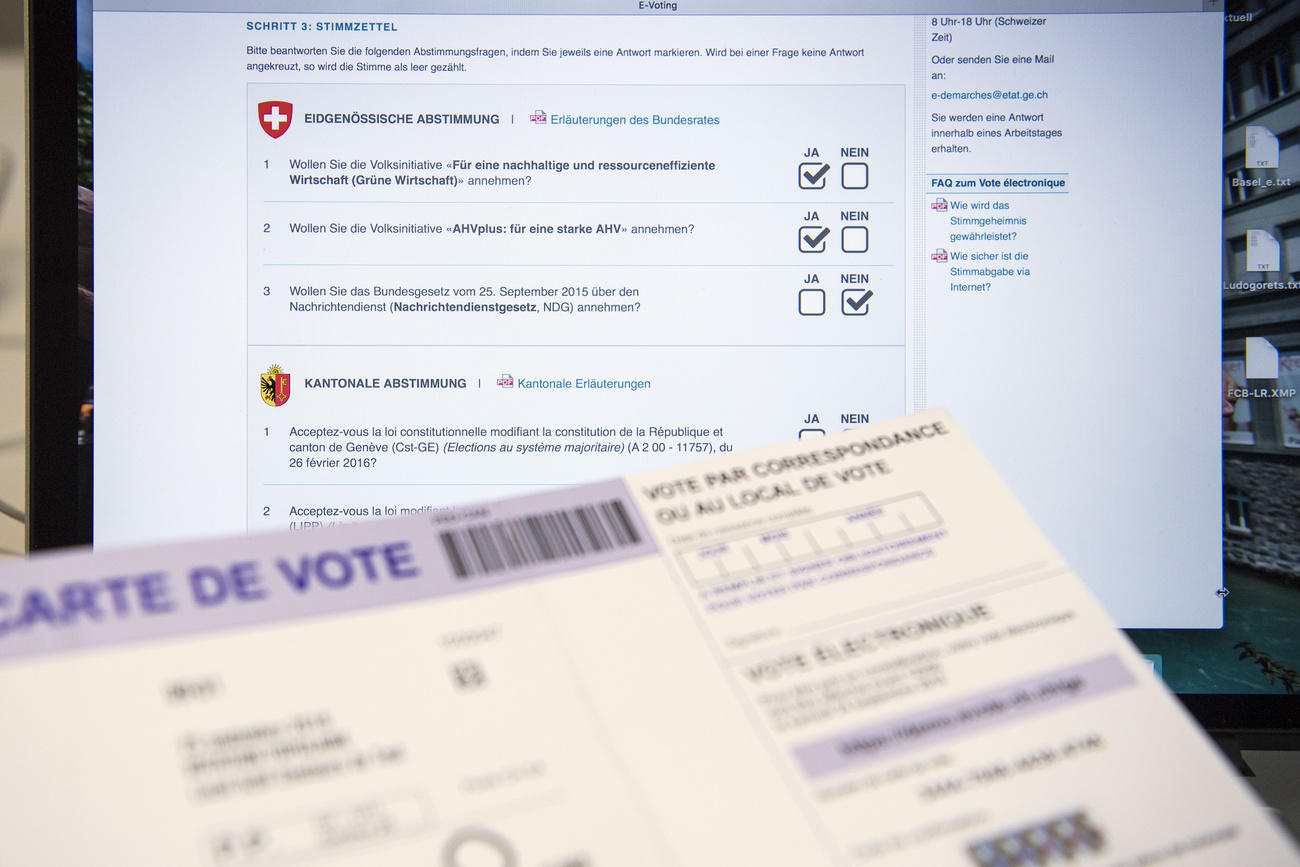
Most Swiss expats to lose e-voting access in parliament elections

Swiss citizens overseas registered for e-voting in the cantons of Geneva, Bern, Aargau and Lucerne will not be able to vote electronically in the national parliament elections in October.
The canton of Geneva has decided to accelerate the phasing out of the voting platform used by these cantons until now.
Geneva had earlier announced that it was shelving its CHVote platform (developed in 2003) due to cost reasons. However, it said that it would keep the platform going until February 2020.
But it has now decided to deactivate CHVote earlier than originally anticipated, leaving some users unable to vote electronically in the parliamentary elections in October. This decision was taken in agreement with the cantons of Bern, Aargau and Lucerne, which have been using CHVote since 2010.
The abandonment of Geneva’s e-voting platform will leave Swiss Post, the state-owned postal service, as the sole digital voting provider in Switzerland. Fribourg, Basel, Neuchâtel and Thurgau currently use the platform while St Gallen and Bern (which have been dependent on CHVote) have also indicated they might join.
However, the Swiss Post platform is not without its problems. It could not be used for voting in May after public intrusion tests identified critical errors. The Federal Chancellery must decide on the next steps regarding the future of e-voting.

More
Geneva shelves e-voting platform on cost grounds

In compliance with the JTI standards
More: SWI swissinfo.ch certified by the Journalism Trust Initiative




























You can find an overview of ongoing debates with our journalists here . Please join us!
If you want to start a conversation about a topic raised in this article or want to report factual errors, email us at english@swissinfo.ch.